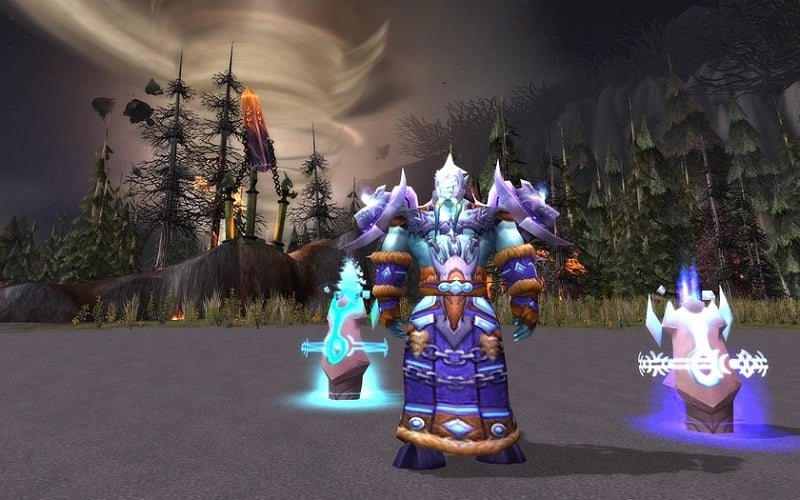SOE head John Smedley apparently stated in a recent interview with 17173.com that he feels Star Wars: The Old Republic will be the last large-scale MMOG to use the subscription revenue model. While it's possible something was lost in the translation from English to Chinese and then back again, it wouldn't surprise me if the reports are essentially accurate; he has expressed opinions before that he must have known would raise a few eyebrows.
I found it interesting to speculate as to the likelihood that this scenario will actually happen. Although it's not a lock by any means, neither am I prepared to dismiss the possibility. Indeed, it's not particularly difficult to put together a supporting case, albeit with a number of circumstantial elements.
As a starting point, we can look at the cost of developing a major MMOG these days. Unlike Smedley, we can only guess but given we're talking about large-scale endeavors, not niche offerings that aren't expected to have the same breadth and depth of content, systems et al, it's definitely a lot of money. Even if we avoid trying to compare with SWTOR, what do you estimate it cost to bring out releases that would probably fall into the next budget tier down? If we take the likes of Age of Conan and WAR as examples, I'd guess that the ballpark only opens up somewhere above $20 million, possibly quite a bit above.
Next, let's consider potential publishers. If we assume Smedley said what was reported, SOE is obviously out of the picture. EA can afford the money, but do you think it has an unannounced large MMOG in production? I doubt it, which means that even if SWTOR exceeds all expectations, we're talking about investing big bucks into another subscription title that won't go live for probably four or five years, during which time the market may well change significantly. This scenario isn't impossible, but neither does it seem like one I ought to bet on.
Activision Blizzard also has the financial resources. Since I think WoW will move farther in the direction of F2P, it's not so easy to imagine a new subscription MMOG. I wouldn't have been surprised if Diablo III had been Diablo Online and charged by the month, but now... What's more, unless something yet to be announced is fairly far along already, the launch time frame is a long way out. In addition, why would the company want to compete against itself in the market segment it already dominates instead of entering the part that's both larger and growing at a faster pace?
Beyond those, what other publishers are left that warrant consideration? Is it realistic to think that after moving both DDO and LotRO away from their monthly fee-based roots, Turbine will return to that approach with a new game? How credible would such a move be after the two highly visible shifts it has made? The same basic argument can also be applied to Funcom. NCsoft stuck with subscription in Korea for a long time after F2P gained predominance there, but its commitment has softened, witness the first steps it has taken in the past year or so. Tentative though they may be, how far can the company go before there's no going back? Given its adventures with item sales in EVE, CCP might be feeling somewhat gun shy, but is that enough to limit its aspirations to remaining in the smaller of the two ponds?
Another factor is that I'm not discussing all subscription MMOGs, but rather just the ones with very large budgets. We don't see many such projects to begin with. This is understandable since the cost is not only high, but rising. So even with the market expanding, how many more will we see anyway? If you happen to have $50 million, $100 million or more available, would you put all your proverbial eggs in one basket or fund multiple initiatives so as to spread the risk across a portfolio? And let's not forget that if one of them takes off, it can be expanded faster by allocating ongoing development resources accordingly.
So to be clear, I'm not saying there won't be any more subscription MMOGs. I think we'll continue to see some unless the market shifts enough so this revenue model is no longer viable, which I doubt will happen any time soon. So, I expect to continue seeing new releases that use this approach. I just think they're more likely to be mid- and smaller-budget ones.
If it turns out that Smedley and I are both using cloudy crystal balls, I suspect the main reason will be the lure of a big initial wave of retail sales. After all, if it can sell a million copies at full pop, the publisher's share will be something in the area of $25 million. That's a big step toward recouping the development cost and turning a profit. Although F2P operators are getting better at monetizing their games, they simply don't have any way of immediately generating comparable cash inflow. This raises a not so savory question: Would a publisher deliberately launch using the subscription model while already intending to switch soon after? Although I'd like to think not, you never really know.
Also of interest in the aforementioned interview was Smedley's statement that PlanetSide 2 will be F2P. This comes as basically no surprise at all; even without his other comment as context, I think it was a relatively safe guess. While he apparently didn't provide specifics, it seems likely that the implementation will be some form of “freemium” including a monthly membership option. While I have no major issues with this approach, I do wonder if it's becoming more or less standard in this part of the world because it generates more revenue or as a way of reducing perceived risk.





